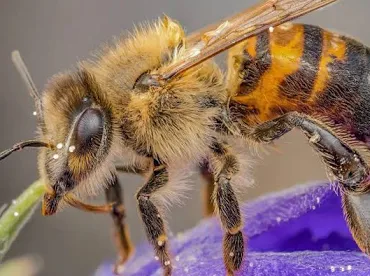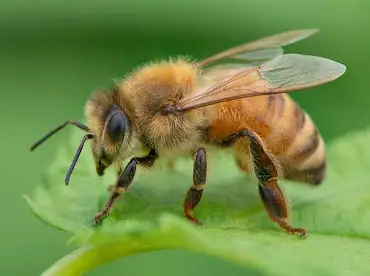France Upholds Pesticide Ban, Guaranteeing Survival of the Bees
LOS ANGELES- Over the past decade, France has stood at the center of Europe’s fight to protect pollinators from the devastating effects of pesticides.
In 2018, the nation became the first EU member to ban several neonicotinoid insecticides—chemicals long linked to colony collapse and bee mortality.
These so-called “bee-killing” pesticides disrupt navigation, reproduction, and immune systems in pollinators, pushing hives toward decline even when exposure levels are low.
The French ban was a bold move, one that placed ecological health and food security above short-term farming convenience. Bees, after all, are essential workers of global agriculture, pollinating about 75% of the crops humans consume.
Without them, harvests would plummet, biodiversity would weaken, and food chains would collapse.
In 2025, France’s commitment to the ban faced a dramatic test. The Duplomb law, passed in parliament, included provisions to reauthorize acetamiprid, one of the banned neonicotinoids. Supporters framed it as necessary for farmers under pest pressure.
But environmentalists, beekeepers, and ordinary citizens erupted in protest. A petition opposing the rollback gathered more than two million signatures, the largest in French history on an environmental issue.

One of mother nature’s hardest working creatures.
In August, the Constitutional Council struck down the pesticide clause, citing France’s constitutional right to live in a “balanced and healthy environment.” In doing so, the court upheld the nation’s groundbreaking ban and reaffirmed its responsibility to future generations.
For many observers, the ruling was more than a legal technicality—it was a symbolic victory for bees, for biodiversity, and for the principle that agriculture cannot thrive by poisoning its own pollinators.
The symbolism matters because bees are not only honey producers or pollinators; they are sentinels. Their health reflects the state of the broader ecosystem. When pesticides dominate, bees vanish. When regulations protect them, they thrive—and with them, crops and farmers.
France’s defense of its ban highlights a simple truth: pollinator survival is inseparable from sustainable farming. That same truth is now beginning to shape industries far beyond conventional agriculture—including cannabis.
The cannabis sector, particularly in North America, has yet to fully resolve its relationship with pesticides. Federal illegality means there are no unified EPA guidelines, and states apply fragmented, sometimes conflicting, rules.
In this regulatory vacuum, some cultivators have turned to questionable practices, while others have embraced organic and regenerative methods. France’s bold stance suggests what the future may look like: stronger oversight, restrictions on harmful inputs, and a greater emphasis on ecological health.
For cannabis, which is deeply tied to consumer wellness and environmental branding, aligning with pollinator protection could be both a necessity and a market advantage.
A standout example is Raw Garden, a leading California cannabis cultivator. They’ve placed beehives directly on their farms—a move with multiple layers of impact. While cannabis is wind-pollinated, the presence of bees enriches biodiversity, strengthens soils, and supports companion plants.
Beekeepers are also entitled to know about pesticide use nearby, so by keeping hives, Raw Garden compels surrounding farms to declare pesticide applications, creating natural oversight. For a consumer base increasingly concerned with sustainability, Raw Garden’s bee-friendly strategy demonstrates stewardship of land, not just production of crops.
It’s a clever, multipurpose approach—one that uses bees not only for ecological resilience but also as a check on chemical overuse.
France’s defense of its pesticide ban is not just a European story. It is a reminder to industries worldwide, cannabis included, that pollinator health is inseparable from the health of agriculture itself. Bees can serve as both allies and watch dogs—helping farms diversify ecosystems, forcing transparency on neighbors, and signaling to consumers that a brand is committed to sustainability.
Cannabis companies that align with this principle now will likely be ahead of the curve when regulators eventually impose stricter standards.
In France, the ban stands, and the bees have won—for now. For cannabis, the opportunity is clear: build with bees, not against them, and create an industry that thrives in harmony with the ecosystems it depends on.



































